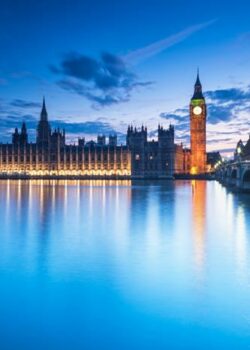An eleventh-hour plea to include an Audit Reform Bill in tomorrow’s King’s Speech has been made by one of the UK’s most senior accountants in practice, saying the UK “desperately” needs a “clear vision for the future”.
Paul Stephenson, managing partner of Deloitte, one of the Big Four audit firms, made the intervention in an editorial for The Times newspaper after the government cancelled one set of reforms, while stalling others until after a general election expected some time next year.
Reform has been under discussion since the collapse of construction giant Carillion in 2018. Stephenson says that when the firm participated in consultation on transforming the audit landscape following the collapse, it warned the UK needed a “vision” or stakeholders would “disengage or choose to do the minimum to comply”. He now warns that this “seems to be what is happening”.
“Someone will always say that now is not the right time but we need to step back and remember why we started this in the first place,” writes Stephenson.
“Despite all the reviews and work in the past few years, reform seems to have dropped off the list completely or, arguably worse, will only be achieved in a piecemeal or lopsided fashion.
“That will not achieve the original aim of restoring trust in audit and corporate governance and, ultimately, business.”
Taking sides
Stephenson’s tone puts him at odds with a government that has failed to bring forward legislation needed for the reforms—though it was listed in the Queen’s Speech last year—and with business minister Kevin Hollinrake. Last month, Hollinrake cancelled new reporting regulations, about to come into force, after the London Stock Exchange (LSE) argued against them.
LSE chief executive Julia Hoggett was quoted in the government’s press release, calling the regulations an “additional reporting burden” and saying their removal was another “step toward the level playing field UK companies need to compete and drive the growth economy to the benefit of all stakeholders.”
The division appears to indicate fundamental differences in approach: on the one side, an audit sector keen to shore up the integrity of audit and audit firms as a way of underpinning the reputation of UK markets as a safe place to do business; on the other, a government keen to establish a reputation for “light-touch” rule making that would keep regulatory burdens low and help attract investment, some of it from overseas.
The cancelled regulations would have seen large companies face new responsibilities for reporting on their resilience and risk measures, audit and assurance policies, anti-fraud measures and distributable profits.
Meanwhile, long-awaited legislation is needed to bring into being a new watchdog, the Audit, Reporting and Governance Authority (ARGA), from the current body, the Financial Reporting Council (FRC). Legislation would also potentially give ARGA new powers to impose minimum practice standards on audit committees, and the ability to sanction them if they fall short of compliance with the measures.
Laws are also needed to introduce managed shared audit—an audit process that would see one of the Big Four firms work alongside a so-called “challenger” firm to complete large company audits. Precise details of how this might work are yet to be made public.
The U-turn on new reporting regulations has also caused speculation about what might happen to the revised UK Corporate Governance Code that is currently under consultation at the FRC.
The draft version of the code includes another new reporting measure, which would see company directors make a statement on the fitness of their companies’ internal controls and what assurance measures they have in place for them. Some close observers have suggested that the statement may be rethought, given the government’s approach to ditching planned reporting regulations.
Reverse and worse
There has been widespread criticism of the government’s about-face on audit reform. In a comment piece for Board Agenda this morning, Roger Barker, director of governance at the Institute of Directors, writes: “It was another surprising policy U-turn by the government, coming just weeks after ditching the northern leg of HS2. It adds to the sense that the government is unable to follow through with its own commitments.”
Elsewhere, Mike Suffield, director of policy and insights at ACCA, a professional body for accountants, argues the government’s decision will “diminish” the UK’s reputation for reporting.
Last week, MPs and members of the House of Lords also called on government to push ahead with reforms.
Carillion’s demise prompted a parliamentary investigation and three government-ordered reviews into the state of the audit market, audit supervision and the content of audit. Years on, though some change has happened voluntarily (firms have separated audit from other functions) and regulators have done what they can without necessary legislation, the entire sector still waits for the government to act. It remains to be seen whether the latest appeals will be heeded.





